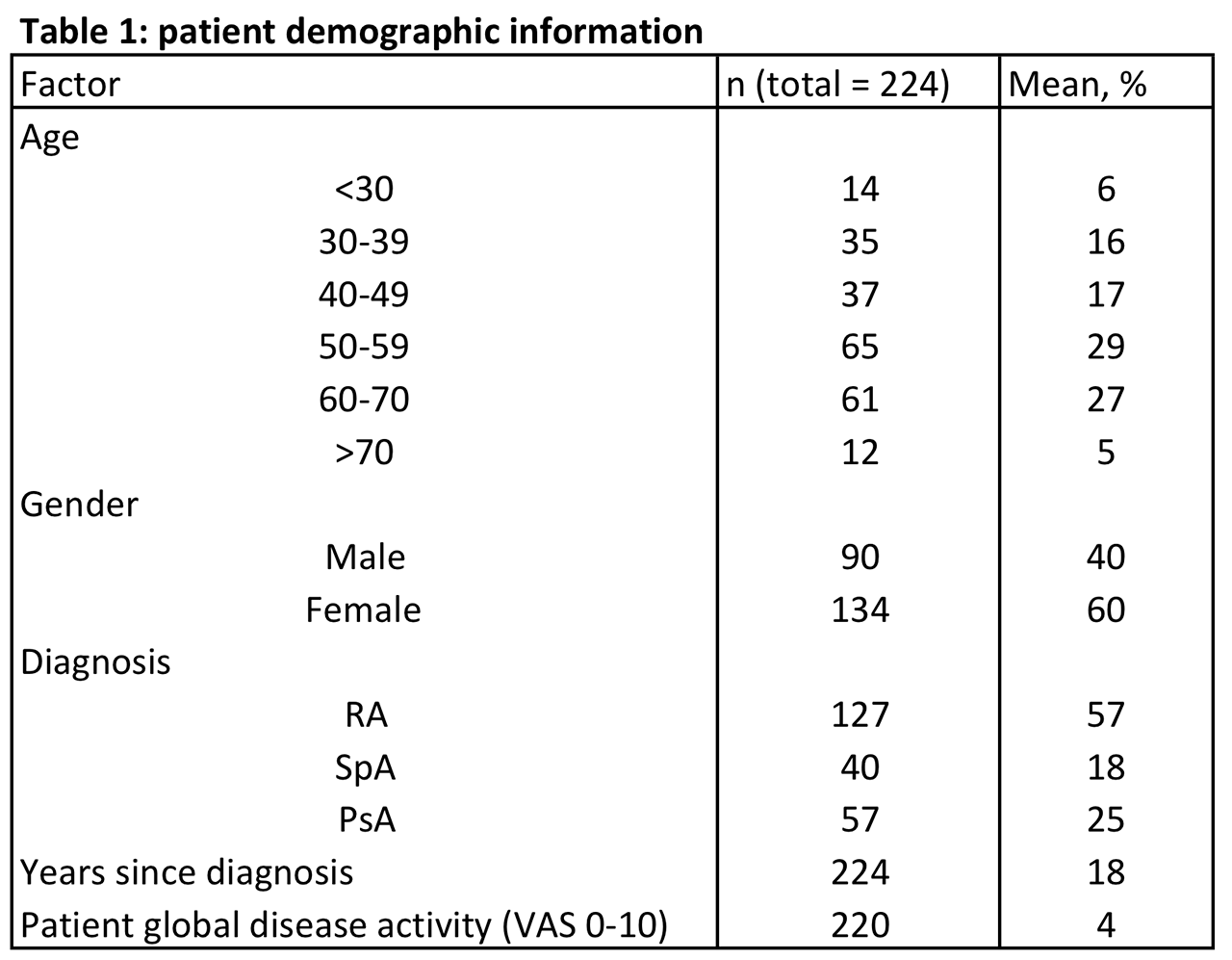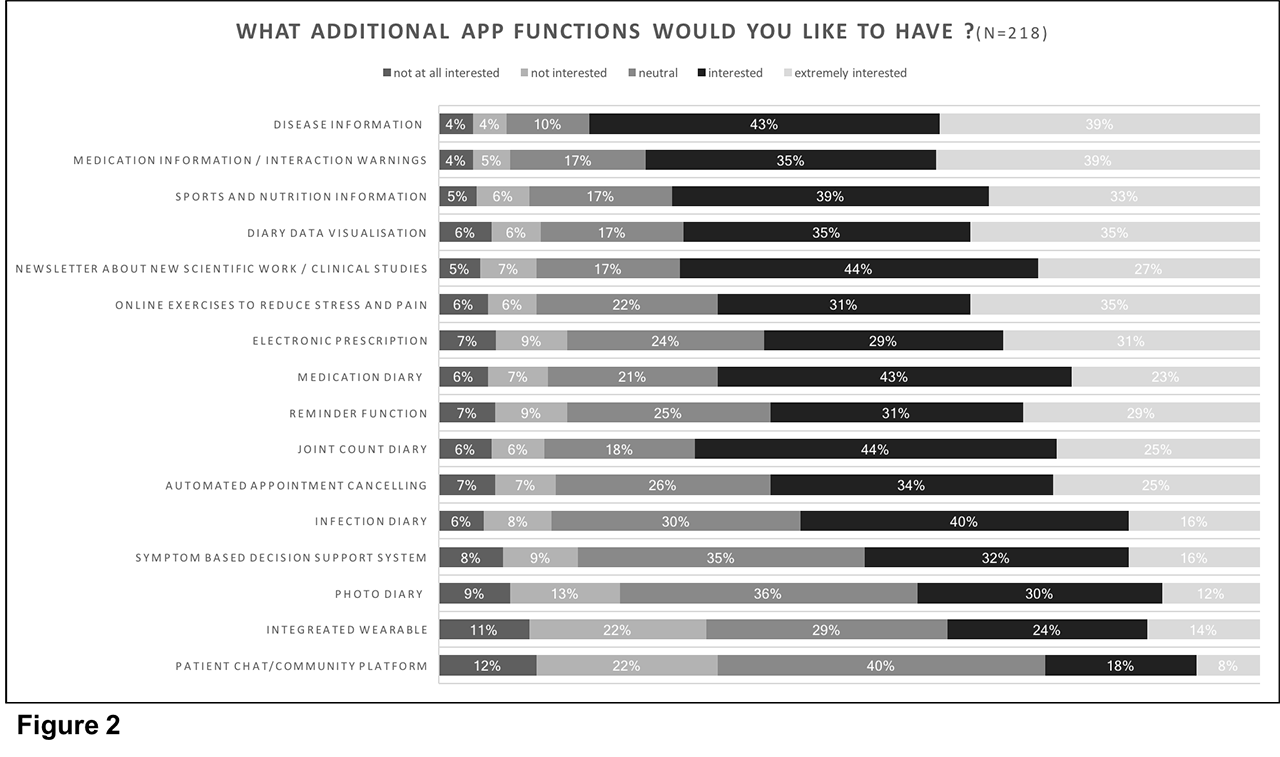Session Information
Date: Tuesday, November 12, 2019
Title: Patient Outcomes, Preferences, & Attitudes Poster II: Patient Preferences, Beliefs, & Experiences
Session Type: Poster Session (Tuesday)
Session Time: 9:00AM-11:00AM
Background/Purpose: Mobile health applications have the potential of saving costs, empowering patients and improving treatment outcomes. Furthermore, the use of medical apps in routine care is increasing among rheumatologists[1]. In order to turn digitalization and all its benefits into practice it is crucial to include the main stakeholders. We therefore wanted to explore the needs and attitudes of patients with rheumatic diseases concerning mobile apps.
Methods: Between December 2018 and January 2019, 224 consecutive patients with rheumatoid arthritis, psoriatic arthritis and spondyloarthritis were seen at one rheumatology outpatients clinic and asked to complete a paper-based survey. This survey evaluated the individual mobile app experiences, preferences and attitudes. This study was approved by the Ethics committee (No. 418-18B) and all patients consented to the study.
Results: Patient demographics are displayed in Table 1. 198 patients (90%) regularly used a smartphone, 103 patients (46%) regularly used social media. 144 (65%) patients believed that using medical apps could be beneficial for their health. Only 9 patients (4%) were currently using medical apps and only 24 patients (11%) stated that they knew useful rheumatology websites / mobile apps. 211 patients (96%) would agree to share their mobile app data for research purposes if data was transferred by a secure and anonymized / pseudonymized method. 166 patients (76%) would welcome official mobile app recommendations from the national rheumatology society. Only 33% would not consent to future data entry (Figure 1), whereas average time for entry should not exceed more than 5 minutes. The most popular three app features desired were information about the disease, medication and sports and nutrition (Figure 2).
Conclusion: Most patients possessed smartphones and believed that using medical apps could be beneficial for their health. They were also willing to share data for research purposes. However only a small minority were currently using medical apps or knew useful apps. Patients stated that they would welcome app recommendations and information provided by apps. We could successfully identify unmet needs and patient priorities to accelerate and guide the way of mobile apps into routine rheumatology care.
References: 1. Knitza, J. et al. [Use of medical apps and online platforms among German rheumatologists : Results of the 2016 and 2018 DGRh conference surveys and research conducted by rheumadocs].Z Rheumatol, 2018.
To cite this abstract in AMA style:
Knitza J, Raab C, Lambrecht A, Simon D, Hagen M, Bayat S, Schett G, Kleyer A, Hueber A. The Urge for Mobile Apps in Rheumatology – a German Patient Perspective [abstract]. Arthritis Rheumatol. 2019; 71 (suppl 10). https://acrabstracts.org/abstract/the-urge-for-mobile-apps-in-rheumatology-a-german-patient-perspective/. Accessed .« Back to 2019 ACR/ARP Annual Meeting
ACR Meeting Abstracts - https://acrabstracts.org/abstract/the-urge-for-mobile-apps-in-rheumatology-a-german-patient-perspective/



